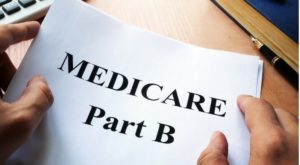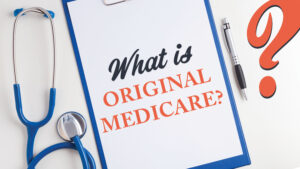Medicare Eligibility – Who Qualifies for Medicare Benefits?

For over 57 years, Medicare has served as a vital healthcare solution for Americans aged 65 and older as well as individuals with certain disabilities. Understanding the eligibility requirements is essential to ensure you receive the comprehensive benefits Medicare offers.
In this blog post, we will clarify all aspects of Medicare eligibility, helping you determine which Medicare plans you may qualify for. We’ll explore coverage options that include primary care, hospital stays, and other essential healthcare services to help you make an informed decision about your Medicare benefits.
Medicare Eligibility: Who Qualifies and When?
Medicare is a federal health insurance program that provides coverage for individuals aged 65 and older. It also extends to younger individuals who have permanent disabilities or certain chronic conditions, such as End-Stage Renal Disease (ESRD).
Do I Automatically Receive Medicare When I Turn 65?
Whether you are automatically enrolled in Medicare at 65 depends on your Social Security or Railroad Retirement Board (RRB) benefits:
- If you are already receiving Social Security or RRB benefits when you turn 65, you will automatically be enrolled in Medicare Part A and Part B.
- If you are not receiving these benefits, you will need to enroll manually when you become eligible.
Medicare Eligibility Requirements for Parts A & B
To qualify for Medicare Part A and Part B, you must be:
✔️ A U.S. citizen OR
✔️ A permanent resident who has lived in the United States for at least five years
Now, let’s break down the four main parts of Medicare and what each covers.
Breaking Down the Four Main Parts of Medicare
Medicare Part A (Hospital Insurance)
Medicare Part A, often referred to as hospital insurance, covers costs related to:
- Inpatient hospital stays
- Skilled nursing facility care (following a qualifying hospital stay)
- Hospice care
- Some home healthcare services
Part A does not cover long-term care or custodial care, so additional planning may be necessary for extended healthcare needs.
Who Qualifies for Medicare Part A?
Most individuals qualify for premium-free Part A if they meet the eligibility criteria based on their own, spouse’s, parent’s, or child’s work history.
To qualify for premium-free Part A, you must:
✔️ Have earned enough quarters of coverage (QCs) through payroll taxes under the Federal Insurance Contributions Act (FICA)
✔️ Be eligible for Social Security or Railroad Retirement Board (RRB) benefits
Automatic Enrollment:
If you are 65 or older and already receiving Social Security or RRB benefits, you will automatically receive premium-free Part A. If you are not automatically enrolled, you must apply for Medicare.
- If you apply within 6 months of your 65th birthday, Part A coverage will start the month you turn 65.
- If you apply later, coverage can be retroactive for up to 6 months.
What If You Have to Pay for Part A?
If you don’t qualify for premium-free Part A, you may purchase it by following these steps:
✔️ Enroll in Medicare Part B (medical insurance)
✔️ Pay both Part A and Part B premiums to maintain coverage
Understanding your Part A eligibility is crucial for securing comprehensive healthcare coverage as you approach retirement.
Medicare Part B (Medical Insurance)
Medicare Part B provides medical insurance for essential healthcare services, including:
- Doctor visits
- Medically necessary services
- Preventive care (such as screenings and vaccinations)
- Outpatient treatments
- Durable medical equipment (DME)
This coverage plays a crucial role in diagnosing, treating, and managing medical conditions, ultimately helping beneficiaries maintain their overall health and well-being.
Who Qualifies for Medicare Part B?
Individuals who are not automatically enrolled must actively meet specific requirements to qualify for Medicare Part B, including:
✔️ Being 65 or older
✔️ Residing in the United States
✔️ Being a U.S. citizen OR a lawful permanent resident for at least five continuous years before applying for Medicare
How Does Automatic Enrollment Work?
If you are already receiving Social Security or Railroad Retirement Board (RRB) benefits, you will be automatically enrolled in both:
✅ Premium-free Medicare Part A
✅ Medicare Part B
Important Note for Puerto Rico Residents
Unlike residents of the 50 U.S. states, individuals residing in Puerto Rico are automatically enrolled in Part A only—not Part B. This means Puerto Rico residents must actively enroll in Part B to ensure they have comprehensive Medicare coverage.
What About Individuals with Premium Part A?
If you must pay a premium for Part A, you can still enroll in Part B by meeting the following criteria:
✔️ Age eligibility (65 or older)
✔️ Residency requirements (U.S. resident)
✔️ Citizenship or lawful permanent residency conditions
Understanding Medicare Part B eligibility and enrollment ensures you receive the medical care and preventive services necessary for long-term health.
Medicare Part C (Medicare Advantage)
Medicare Part C, commonly known as Medicare Advantage, is an optional insurance plan offered by private insurers that provides expanded coverage beyond Original Medicare.
Medicare Advantage plans combine the benefits of Medicare Part A (hospital insurance) and Part B (medical insurance) while often including additional services, such as:
- Vision care
- Dental care
- Hearing care (excluding hearing aids)
- Wellness programs
- Prescription drug coverage (in many plans)
These plans offer a comprehensive healthcare solution tailored to individual needs and may have lower out-of-pocket costs compared to Original Medicare.
Who Qualifies for Medicare Part C?
To enroll in Medicare Advantage (Part C), you must be eligible for both Medicare Part A and Part B. This includes:
✔️ Individuals aged 65 or older who are enrolled in both Medicare Part A and Part B.
✔️ Individuals under 65 with qualifying disabilities who are actively enrolled in both Medicare Part A and Part B.
Since Medicare Advantage plans are offered by private insurance companies, plan options, coverage, and costs vary by location. Understanding your eligibility and available plan options can help you find a Medicare Advantage plan that best suits your healthcare needs.
Medicare Part D (Prescription Drug Coverage)
Medicare Part D is a private insurance option designed to help cover the cost of prescription drugs. This essential benefit ensures that beneficiaries have access to necessary medications, making it easier to manage chronic conditions and improve overall health outcomes.
Who Qualifies for Medicare Part D?
Medicare Part D is available to individuals who are eligible for Medicare Part A and/or Part B, including:
✔️ Individuals aged 65 or older who are enrolled in Medicare Part A and/or Part B.
✔️ Individuals under 65 with qualifying disabilities who are enrolled in Medicare Part A and/or Part B.
Funding and Premiums
- Medicare Part A is funded by payroll taxes deducted from working Americans’ paychecks.
- Medicare Part B and Part D are subsidized by the federal government, with beneficiaries contributing a portion of the cost through monthly premiums based on their income.
- Medicare Part D premiums vary by plan and location, and higher-income individuals may be subject to an Income-Related Monthly Adjustment Amount (IRMAA), which increases their premium.
Medicare Part B Premiums for 2025
For 2025, the standard Medicare Part B premium is $185 per month. This premium covers:
✔️ Physician services
✔️ Medications (administered in outpatient settings)
✔️ Medical equipment
✔️ Preventive tests and screenings
Understanding your eligibility and costs for Medicare Part D ensures that you can access affordable prescription drug coverage tailored to your healthcare needs.
Medicare Eligibility Based on Disability
If you are receiving monthly disability benefits from Social Security or the Railroad Retirement Board (RRB), you are automatically eligible for Medicare Part A after 24 months of receiving these benefits.
Additionally, if you are a federal, state, or local government employee with disabilities, you may become entitled to disability benefits after 29 months—even if you are not eligible for Social Security or RRB benefits. This leads to automatic eligibility for Medicare Part A, ensuring that individuals with disabilities have access to essential healthcare coverage.
Special Provision for Amyotrophic Lateral Sclerosis (ALS) Patients
If you have Amyotrophic Lateral Sclerosis (ALS), also known as Lou Gehrig’s disease, you qualify for Medicare Part A immediately upon becoming eligible for Social Security or RRB disability benefits.
Unlike other disabilities that require a 24-month waiting period, ALS patients do not have a waiting period. This means you can swiftly access Medicare coverage without delays, ensuring you receive the necessary healthcare support as soon as possible.
Special Rule for Individuals Receiving Child Disability Benefits
Under Social Security Administration (SSA) rules, child disability benefits cannot begin before age 18. As a result, Medicare Part A entitlement based on child disability benefits can only begin:
- At age 20 for most individuals
- At age 18 if you have ALS as your disability
These provisions ensure that individuals with disabilities, including ALS patients and those receiving child disability benefits, receive timely Medicare coverage to support their healthcare needs.
Medicare Eligibility Based on End-Stage Renal Disease (ESRD)
Individuals who receive regular dialysis treatments or have undergone a kidney transplant may be eligible for premium-free Medicare Part A, provided they meet certain conditions.
Eligibility Criteria for Medicare Based on ESRD
You may qualify for premium-free Medicare Part A if any of the following apply:
✔️ You have met the required work duration under Social Security, the Railroad Retirement Board (RRB), or as a government employee.
✔️ You are receiving or eligible to receive Social Security or RRB benefits.
✔️ You are the spouse or dependent child of an individual who:
- Has met the required work duration under Social Security, the RRB, or as a government employee.
- Is receiving Social Security or RRB benefits.
By meeting these criteria, you can gain premium-free Part A coverage, ensuring access to essential healthcare services tailored to your specific medical needs.
When Does Part A Coverage Begin for ESRD Patients?
Your Medicare Part A coverage will start based on the timing of your treatment:
- The third month after starting regular dialysis treatments.
- The first month of self-dialysis training.
- The month of receiving a kidney transplant.
- If hospitalized before a kidney transplant, coverage begins two months before the transplant.
Medicare Costs for ESRD Beneficiaries
- Low-income individuals may qualify for Medicare Savings Programs that cover Medicare Part B premiums.
- Higher-income individuals may be subject to an Income-Related Monthly Adjustment Amount (IRMAA), leading to higher Part B and Part D premiums. However, only a small percentage of Medicare beneficiaries are affected by this higher premium adjustment.
Understanding ESRD-based Medicare eligibility can help ensure that individuals with chronic kidney disease receive the comprehensive coverage and financial assistance they need.
Enrollment Periods & Onset of Coverage
Understanding Medicare enrollment periods is essential to ensuring timely coverage and avoiding late penalties. Here’s a breakdown of the key enrollment periods and when coverage begins.
Initial Enrollment Period (IEP)
The Initial Enrollment Period (IEP) is a seven-month window that begins three months before your 65th birthday month and extends three months after.
- For individuals under 65 with qualifying disabilities, the IEP begins in the 25th month of receiving Social Security or Railroad Retirement Board (RRB) disability benefits.
General Enrollment Period (GEP)
The General Enrollment Period (GEP) runs from January 1 to March 31 each year. This period allows individuals who missed their IEP to enroll in Medicare.
- Coverage obtained during the GEP begins on July 1 of the enrollment year.
Special Enrollment Period (SEP)
The Special Enrollment Period (SEP) provides a valuable opportunity to enroll in Medicare outside of the IEP due to qualifying life events, such as:
✔️ Losing employer-sponsored coverage
✔️ Moving to a new area where your Medicare plan is unavailable
✔️ Gaining or losing Medicaid eligibility
These qualifying events grant a limited time window to enroll in Medicare without facing a late enrollment penalty.
By understanding and taking advantage of these enrollment periods, you can ensure seamless Medicare coverage during important life transitions and avoid delays or gaps in healthcare benefits.
Secure Your Future Health and Finances with Plan Medicare – Enroll Today!
Enrolling in Medicare on time is essential to avoid financial penalties and ensure uninterrupted healthcare coverage. At Plan Medicare, we are committed to helping you navigate the complexities of Medicare so you can make informed decisions about your healthcare.
📞 Contact Plan Medicare’s licensed advisors today for personalized assistance in securing comprehensive health coverage and enrolling in Medicare.
✅ Call us at 516-900-7877
✅ Book a free appointment online
Don’t wait—take the first step toward a healthier future today!
Frequently Asked Questions
Who Is Eligible for Premium-Free Medicare Part A?
To qualify for premium-free Medicare Part A, you must have:
✔️ Earned enough quarters of coverage through payroll taxes
✔️ Be eligible for Social Security or Railroad Retirement Board (RRB) benefits
What Is the Railroad Retirement Board (RRB)?
The Railroad Retirement Board (RRB) is an independent U.S. federal agency that administers:
✔️ Retirement and survivor benefits
✔️ Unemployment and sickness benefits for railroad workers and their families
Do I Automatically Get Medicare When I Turn 65?
If you are already receiving Social Security or Railroad Retirement Board benefits, you will be automatically enrolled in premium-free Medicare Part A.
For those not receiving these benefits, you must manually enroll during your Initial Enrollment Period (IEP) to avoid coverage gaps or late enrollment penalties.






